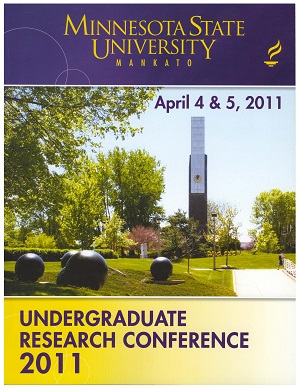Evaluating Teacher Perceptions of Rewards
Location
CSU 253/4/5
Start Date
4-4-2011 9:00 AM
End Date
4-4-2011 10:30 AM
Student's Major
Psychology
Student's College
Social and Behavioral Sciences
Mentor's Name
Kevin Filter
Mentor's Department
Psychology
Mentor's College
Social and Behavioral Sciences
Description
The aim of this research was to evaluate teacher perceptions of reward use among K-12 teachers. More specifically, we looked at whether or not teachers would use rewards to encourage appropriate behavior within the classroom setting. Though use of rewards has been supported by research, far and few are studies that report teachers‘ perceptions and attitudes for and/or against the practice. One could argue teacher perception is the most important viewpoint of all, as it is the teacher – not the researcher – who works closest with the children. To fill this research gap, we conducted a nationwide survey via e-mail using a K-12 teacher mailing list to assess not only the types of rewards used by teachers, but also their general attitudes towards reward use as well as their explanations for their attitudes. Our survey specified and separated tangible, social, escape, and privilege rewards to evaluate specific differences in use and perceptions.
Results were analyzed in relation to basic demographic information such as grade level taught and years of teaching. By looking into this largely uncharted territory and understanding teacher perceptions, we hope to help improve student outcomes by developing strategies to increase the use of positive reinforcement within the classroom.
Evaluating Teacher Perceptions of Rewards
CSU 253/4/5
The aim of this research was to evaluate teacher perceptions of reward use among K-12 teachers. More specifically, we looked at whether or not teachers would use rewards to encourage appropriate behavior within the classroom setting. Though use of rewards has been supported by research, far and few are studies that report teachers‘ perceptions and attitudes for and/or against the practice. One could argue teacher perception is the most important viewpoint of all, as it is the teacher – not the researcher – who works closest with the children. To fill this research gap, we conducted a nationwide survey via e-mail using a K-12 teacher mailing list to assess not only the types of rewards used by teachers, but also their general attitudes towards reward use as well as their explanations for their attitudes. Our survey specified and separated tangible, social, escape, and privilege rewards to evaluate specific differences in use and perceptions.
Results were analyzed in relation to basic demographic information such as grade level taught and years of teaching. By looking into this largely uncharted territory and understanding teacher perceptions, we hope to help improve student outcomes by developing strategies to increase the use of positive reinforcement within the classroom.
Recommended Citation
Schroeder, Jaime J. and Amy Rempher. "Evaluating Teacher Perceptions of Rewards." Undergraduate Research Symposium, Mankato, MN, April 4, 2011.
https://cornerstone.lib.mnsu.edu/urs/2011/poster-session-A/21




